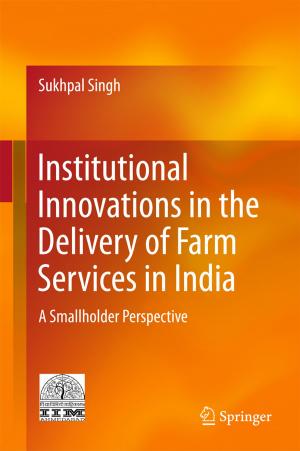Application of Evolutionary Algorithms for Multi-objective Optimization in VLSI and Embedded Systems
Nonfiction, Science & Nature, Technology, Electronics, Circuits, Computers, Advanced Computing, Artificial Intelligence| Author: | ISBN: | 9788132219583 | |
| Publisher: | Springer India | Publication: | August 20, 2014 |
| Imprint: | Springer | Language: | English |
| Author: | |
| ISBN: | 9788132219583 |
| Publisher: | Springer India |
| Publication: | August 20, 2014 |
| Imprint: | Springer |
| Language: | English |
This book describes how evolutionary algorithms (EA), including genetic algorithms (GA) and particle swarm optimization (PSO) can be utilized for solving multi-objective optimization problems in the area of embedded and VLSI system design. Many complex engineering optimization problems can be modelled as multi-objective formulations. This book provides an introduction to multi-objective optimization using meta-heuristic algorithms, GA and PSO and how they can be applied to problems like hardware/software partitioning in embedded systems, circuit partitioning in VLSI, design of operational amplifiers in analog VLSI, design space exploration in high-level synthesis, delay fault testing in VLSI testing and scheduling in heterogeneous distributed systems. It is shown how, in each case, the various aspects of the EA, namely its representation and operators like crossover, mutation, etc, can be separately formulated to solve these problems. This book is intended for design engineers and researchers in the field of VLSI and embedded system design. The book introduces the multi-objective GA and PSO in a simple and easily understandable way that will appeal to introductory readers.
This book describes how evolutionary algorithms (EA), including genetic algorithms (GA) and particle swarm optimization (PSO) can be utilized for solving multi-objective optimization problems in the area of embedded and VLSI system design. Many complex engineering optimization problems can be modelled as multi-objective formulations. This book provides an introduction to multi-objective optimization using meta-heuristic algorithms, GA and PSO and how they can be applied to problems like hardware/software partitioning in embedded systems, circuit partitioning in VLSI, design of operational amplifiers in analog VLSI, design space exploration in high-level synthesis, delay fault testing in VLSI testing and scheduling in heterogeneous distributed systems. It is shown how, in each case, the various aspects of the EA, namely its representation and operators like crossover, mutation, etc, can be separately formulated to solve these problems. This book is intended for design engineers and researchers in the field of VLSI and embedded system design. The book introduces the multi-objective GA and PSO in a simple and easily understandable way that will appeal to introductory readers.















